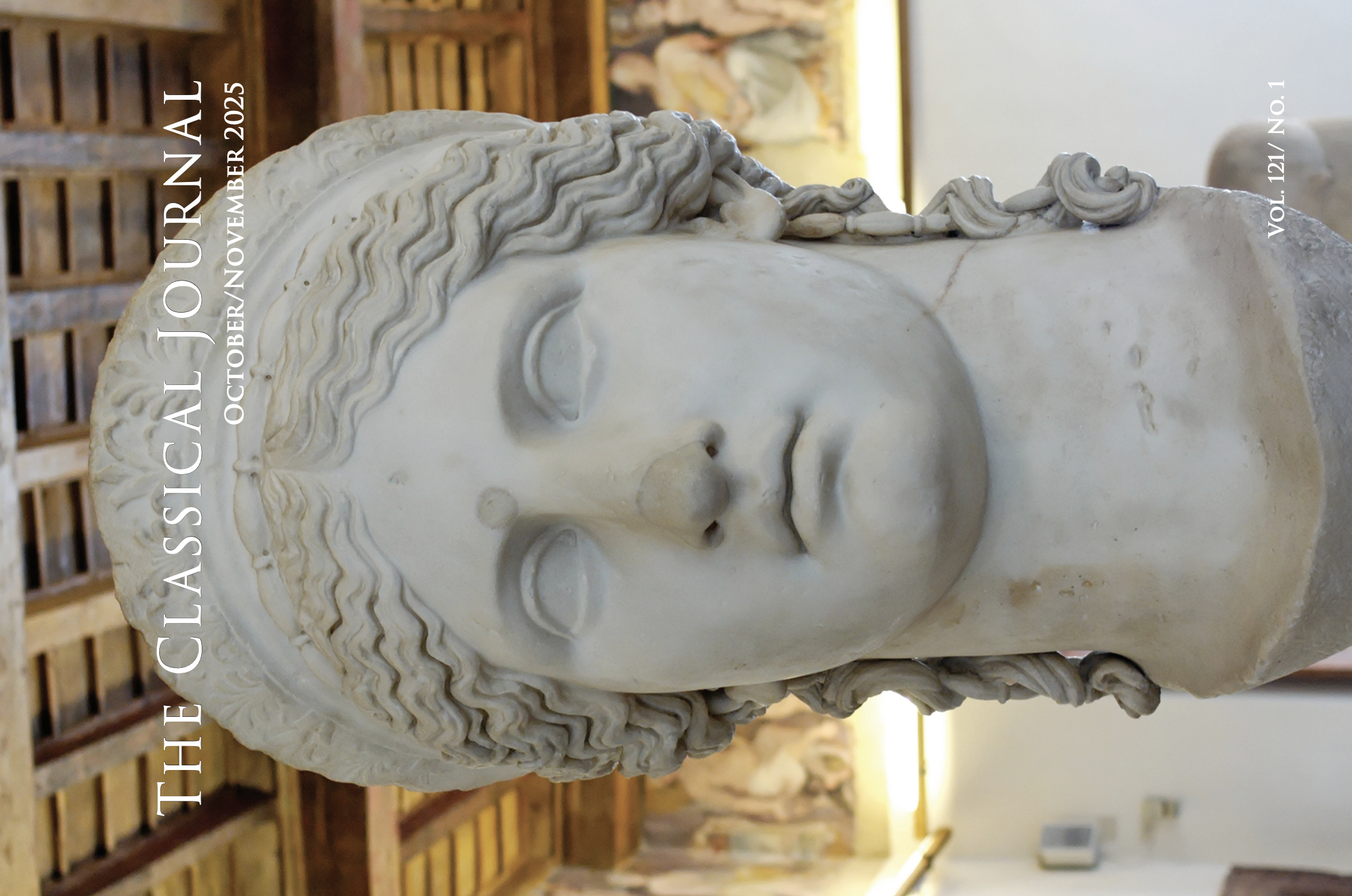The following articles are contained in CJ
104.3
Abstracts of Articles
THE ARISTEIA OF MENELAOS
This paper examines the role played by Menelaos in Iliad 17. A brief consideration of the findings of neo-analysis and type-scene analysis shows that Menelaus' prominence has not been adequately explained. In fact, he fulfills a pivotal function in the larger narrative: by defending Patroklos for Achilleus, Menelaos mediates the two major themes of the poem, Achilleus' wrath and the Trojan War.
DIOGENES' DOGGEREL: CHREIA AND QUOTATION IN CYNIC PERFORMANCE
This paper examines Diogenes the Cynic's parodic quotations from Homer in anecdotes, or chreiai, preserved in Diogenes Laertius' Life. I argue that Diogenes' reworking of Homer suggests a deep familiarity with the themes, structures and compositional techniques of epic poetry and that Diogenes refashioned it spontaneously as a composing poet or rhapsode might have done in performance.
TWO TYPES OF OVIDIAN PERSONIFICATION
In the proems of Ovid's Amores, Ars Amatoria and Remedia Amoris, the speaker manipulates various types of personification in his characterizations of amor, fallaciously advancing the notion that love is conquerable. I use Hesiodic and Platonic models of eros to identify two types of personified amor in Ovid's love poetry and the ways they are used to mislead the reader.
WHAT WOULD POMPEY DO? EXEMPLA AND POMPEIAN FAILURE IN THE BELLUM AFRICUM
One measure of being a good Roman is how one participates in the social world of exempla. The author of the Bellum Africum represents the Pompeians as incapable of recognizing the lessons of the past and applying them to improve upon the celebrated history of the Republic, and thus as unfit to lead the Roman state.


